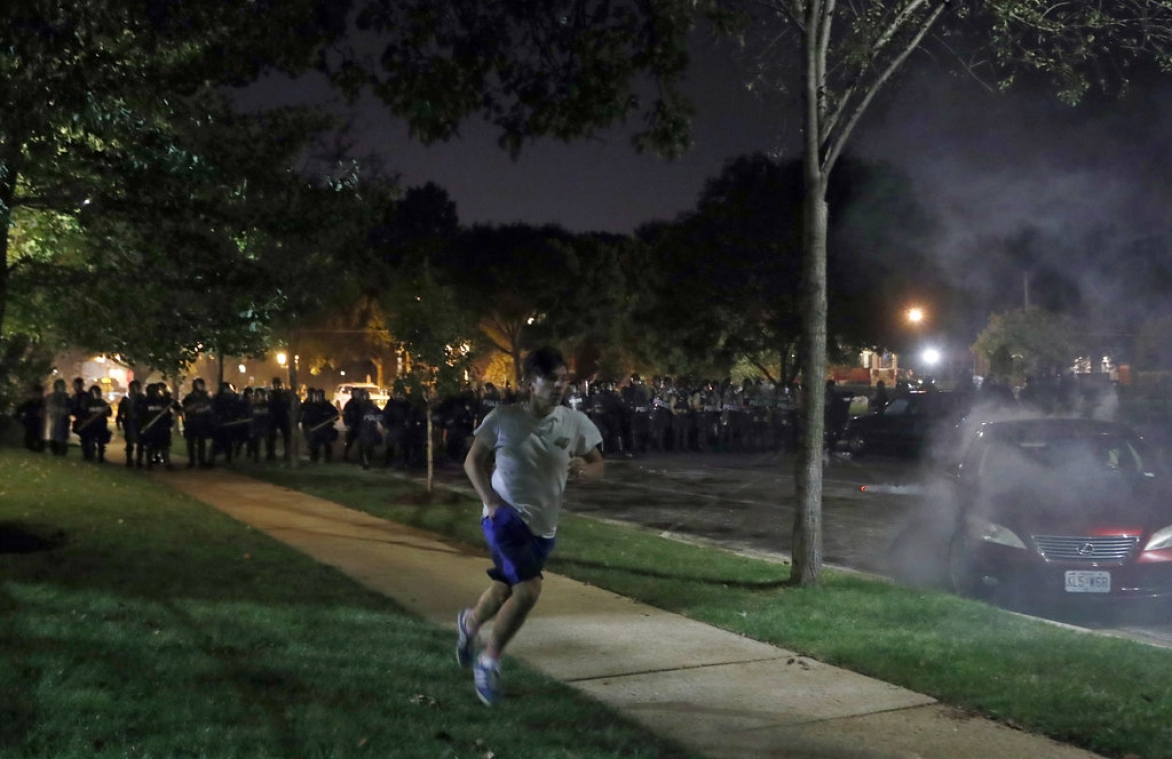A police officer who used force and arrested a now-deceased documentary filmmaker during a protest is not entitled to qualified immunity, a federal appeals court has ruled. The ruling allows excessive force and First Amendment retaliation claims to proceed against the officer.
On Sept. 17, 2017, Drew and Jennifer Burbridge covered protests in downtown St. Louis that occurred after a police officer’s acquittal in the death of Anthony Lamar Smith. The Burbridges, husband and wife, acting in their role as documentary filmmakers, were video recording the protests when a dispersal order was issued.
The Burbridges said they did not hear the dispersal order and police officers arrested Drew Burbridge, pepper sprayed him twice, and allegedly struck him several times. After their criminal charges were dismissed, the Burbridges sued several St. Louis police officers, including Officer Marcus Biggins, for excessive force under the Fourth Amendment and for retaliation under the First Amendment.
Biggins filed a motion to dismiss based on qualified immunity, a doctrine that insulates government officials from liability when they do not violate clearly established constitutional-law principles. Biggins contended that he did not use excessive force and that if the excessive force claim failed, then the First Amendment retaliation claim must fail also. A federal district court denied Biggins qualified immunity.
On appeal, a three-judge panel of the 8th U.S. Circuit Court of Appeals agreed. Sadly, Drew Burbridge died after an accident during the period of the appeal, and Jennifer Burbridge, as personal representative of his estate, filed a motion to be substituted as the party plaintiff.
The 8th Circuit reasoned that Biggins was not entitled to qualified immunity because a reasonable factfinder could determine that he had used excessive force. A First Amendment retaliation claim requires that a plaintiff show that (1) he engaged in First Amendment-protected activity, and (2) that a government official took adverse action against him that would chill a person’s First Amendments rights.
Biggins also argued that because he did not use excessive force, he took no adverse action against Burbridge and the First Amendment retaliation claim must fail.
But the 8th Circuit panel held June 25 in Burbridge v. City of St. Louis that a reasonable jury could find that Biggins used an unreasonable amount of force.
The panel also wrote that “a reasonable jury could conclude that Officer Biggins’s use of excessive force was done in retaliation for Drew’s First Amendment activity.” Thus, the panel concluded that the district court’s denial of qualified immunity was proper and the lawsuit could proceed.
The Free Speech Center newsletter offers a digest of First Amendment and news media-related news every other week. Subscribe for free here: https://bit.ly/3kG9uiJ
David L. Hudson Jr. is a professor at Belmont University College of Law who writes and speaks regularly on First Amendment issues. He is the author of Let the Students Speak: A History of the Fight for Free Expression in American Schools (Beacon Press, 2011), and of First Amendment: Freedom of Speech(2012). Hudson is also the author of a 12-part lecture series, Freedom of Speech: Understanding the First Amendment (2018), and a 24-part lecture series, The American Constitution 101 (2019).

